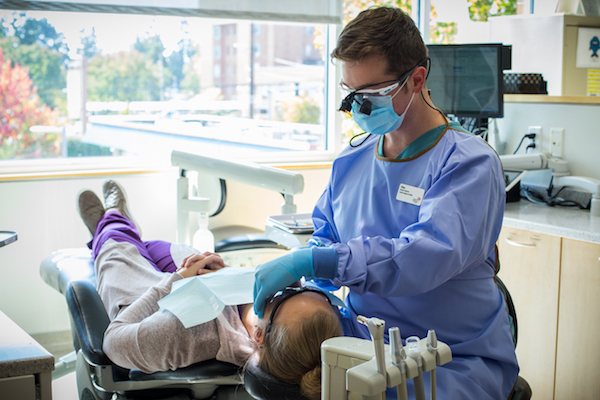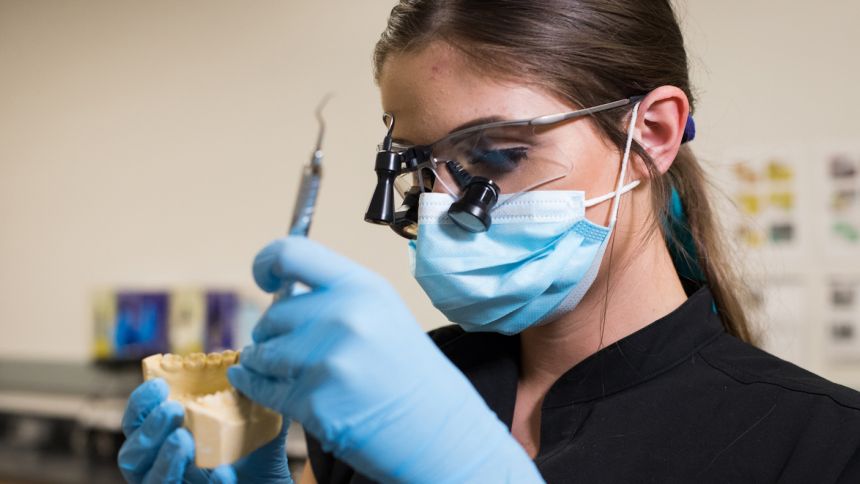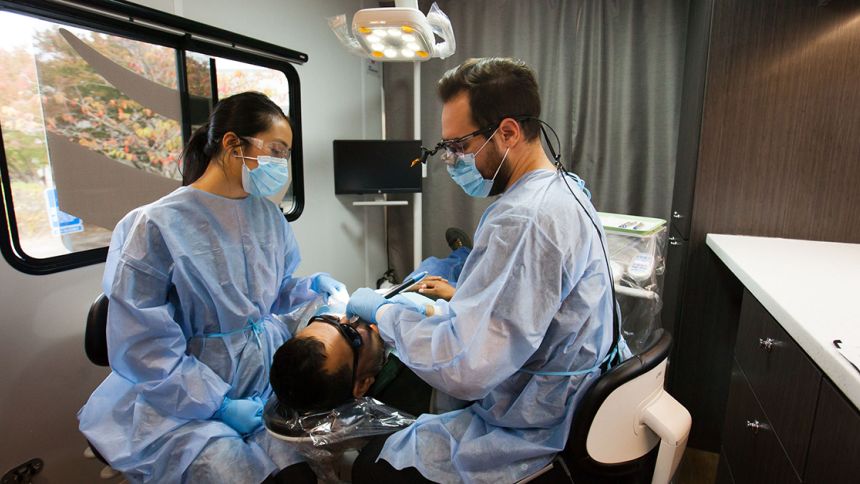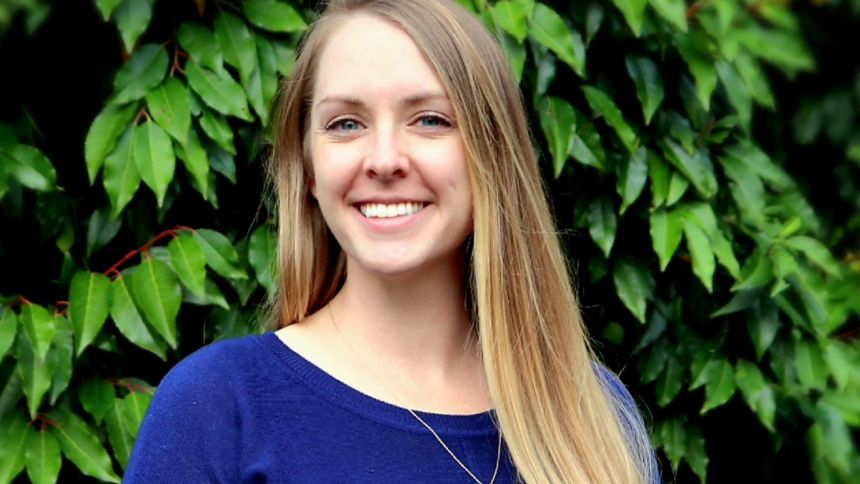Pacific University’s School of Dental Hygiene Studies will participate in a pilot project to help determine the feasibility of adding a dental therapist to a patient’s dental care team. Dental therapists can perform many of the preventive treatments of a dental hygienist and some of the procedures a dentist provides, but do not hold doctorates in dentistry. There are 12 states in the U.S. where dental therapists are authorized to treat patients in some settings.
 Thanks to significant financial support from partner organizations, the school plans to educate two cohorts of students who are licensed restorative dental hygienists trained with the additional skills to become a dental therapist. If the project goes well, it could help lead to passing permanent legislation for the creation of a middle tier of dental practitioners in Oregon known as dental therapists. Advocates think dental therapists will allow more underserved people to receive basic dental care.
Thanks to significant financial support from partner organizations, the school plans to educate two cohorts of students who are licensed restorative dental hygienists trained with the additional skills to become a dental therapist. If the project goes well, it could help lead to passing permanent legislation for the creation of a middle tier of dental practitioners in Oregon known as dental therapists. Advocates think dental therapists will allow more underserved people to receive basic dental care.
Federal studies have found that more than 35 percent of America’s people live in Dental Care Health Professional Shortage Areas, and that another 10,800 practitioners are needed to serve them.
The Pew Trusts have long advocated for the licensing of dental therapists in hopes that more people can receive basic dental care. Pacific’s program will be the first in which participants are already licensed dental hygienists who can continue to work full time during their training, and the fourth training program in the country.
Pacific’s $2 million pilot project, which is backed the Pew Charitable Trusts, the Willamette Dental Group and the Ford Family Foundation, has been provisionally approved by the Oregon Health Authority. Training of the first cohort of 10 students is set to begin Feb. 1, 2020.
The point of the pilot project, said Lisa Rowley, a faculty member and former director of the School of Dental Hygiene Studies, is to test both the professional case for creating a class of dental therapists, as well as the best ways to train them.
Advocates think dental therapists will allow more underserved people to receive basic dental care.
“It’s an opportunity to test the efficiency, cost effectiveness and safety of using dental therapists to perform basic dental procedures,” said Rowley, who thinks dental therapists eventually will practice independently in some settings, rather than under the supervision of a dentist.
In the pilot project, however, the participants will be working dental hygienists who will practice basic dentistry in dentists’ offices, with one-on-one supervision by a dentist. The Willamette Dental Group has agreed to pair each participant with one of its salaried dentists, who will supervise and evaluate the participants’ work.
“Willamette has been perfect to work with,” Rowley said. “We share a very similar philosophy about providing dental care to underserved patients.”
Willamette Dental says it’s interested in seeing how the project delivers in real life.
“Willamette Dental Group practices a team approach to delivering oral health care,” said J. Toby Absher, director of operations for Willamette Dental. “We continue to support the appropriate evolution of our midlevel providers,” he said, referring to dental therapy, teledentistry, the restorative hygiene credential and other adaptations in the field.
When participants complete Pacific’s one-year program, they will receive a certificate in dental therapy.
In a study earlier this year, Pew found that a dental therapist in a rural dental practice could provide basic dental services, including placing fillings and extracting teeth, at a considerably lower cost to providers, and at a slightly lower cost to consumers. “The findings suggest that expanded use of these therapists can improve access to oral healthcare ... while keeping costs down,” Pew wrote.
In some places, dental associations and others have argued against adding dental therapists to the dental team. But Pacific and its partners have moved more carefully, said Rowley, freely sharing their plans with trustees of the Oregon Dental Association and others with an interest in the subject. That open-book approach will benefit the dental therapy pilot by involving stakeholders, she said.
This story appears in the Winter 2019 issue of Pacific magazine. For more stories, visit pacificu.edu/magazine.


